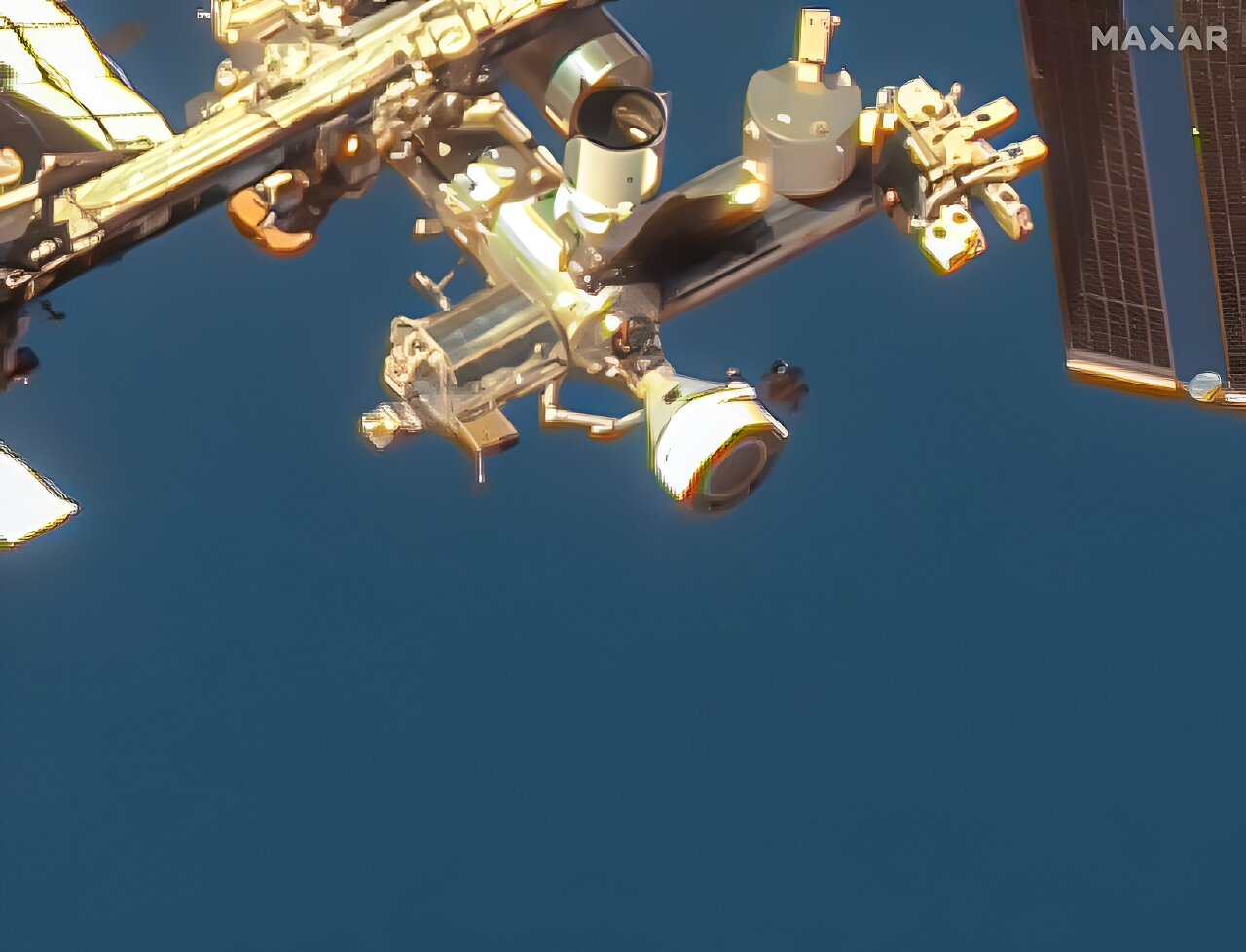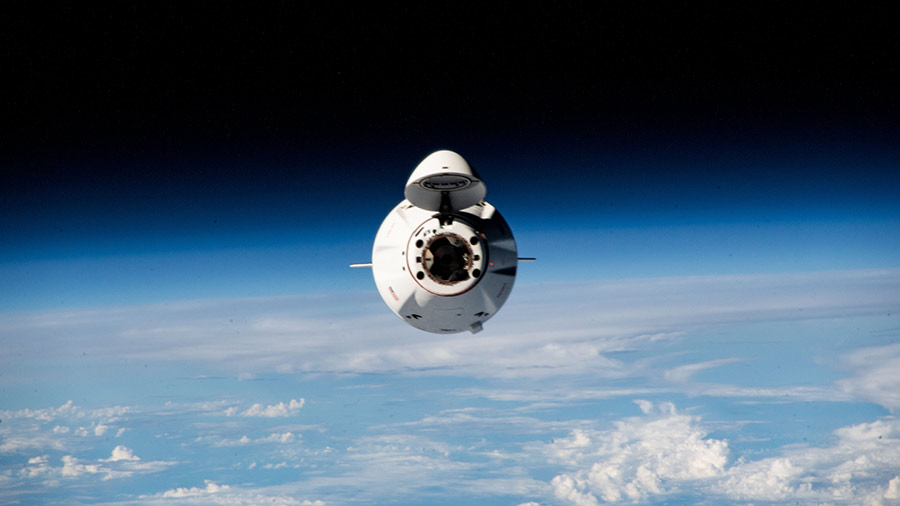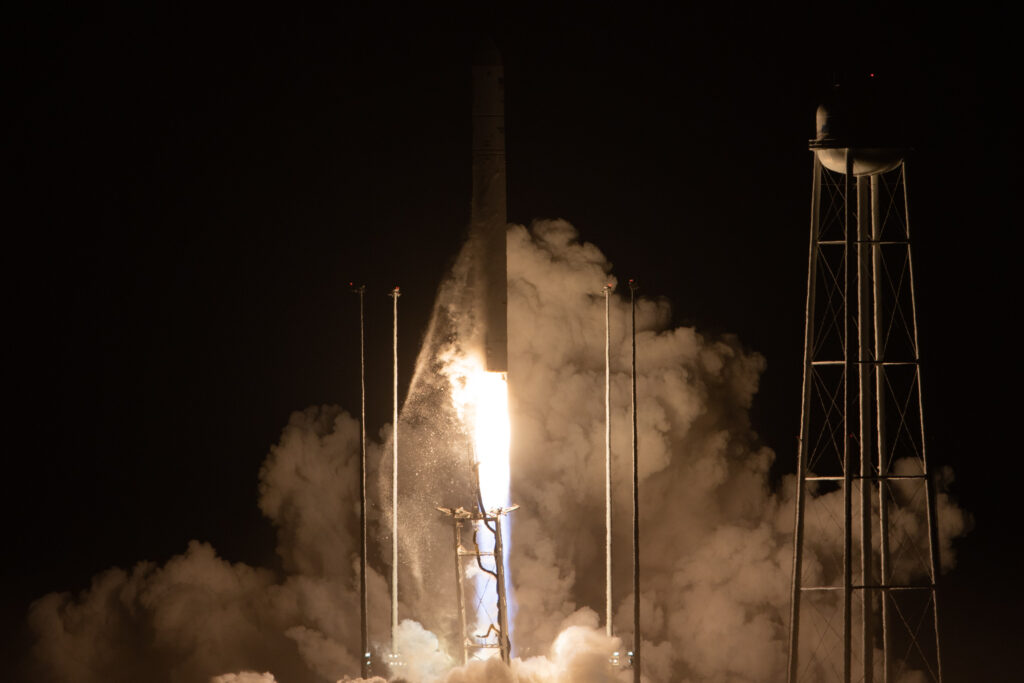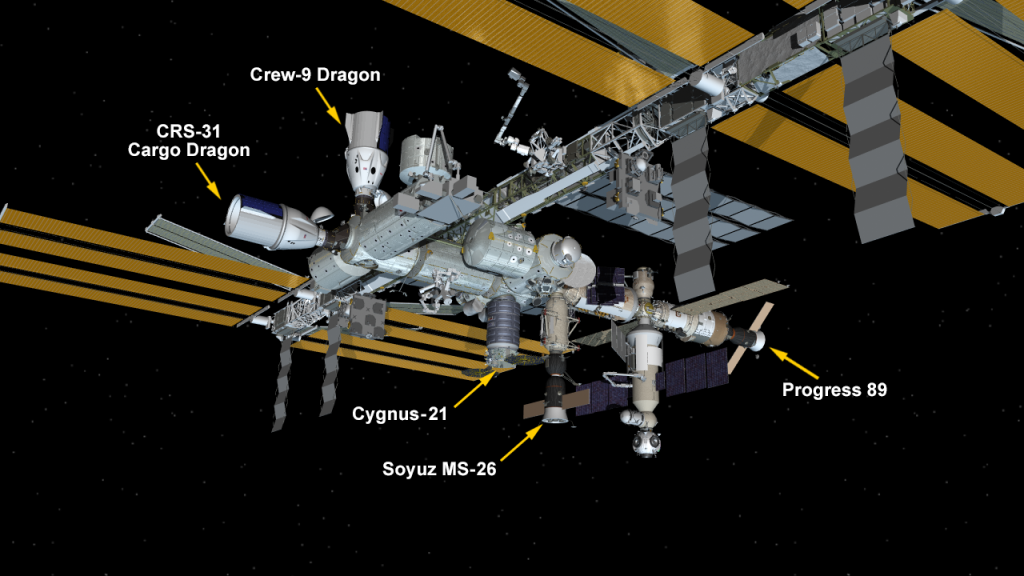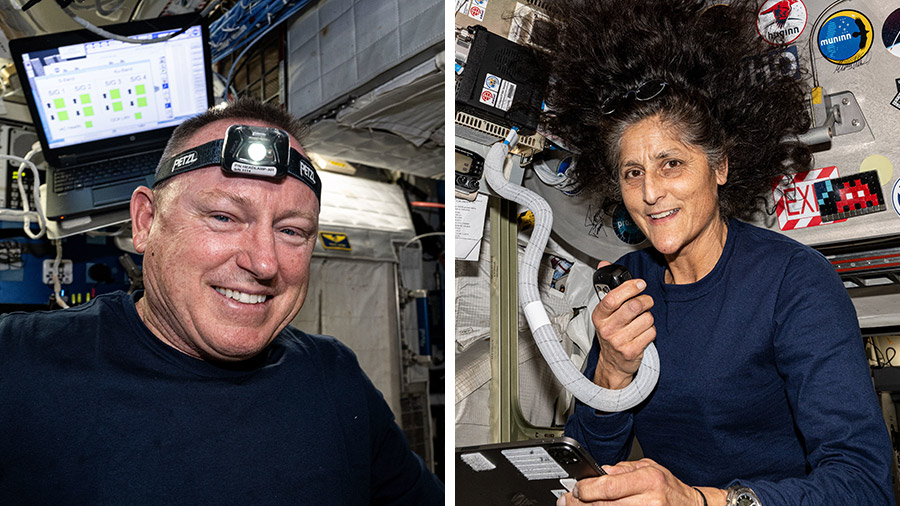
Vein scans and space botany topped Wednesday’s science schedule aboard the International Space Station. Earth observations and health assessments rounded out the day’s investigations as NASA managers on the ground provided an update on Boeing’s Crew Flight Test.
NASA Flight Engineer Tracy C. Dyson, who is celebrating her birthday to day, spent the day on space biology participating in vein scans then cleaning up after a stem cell study. She first joined Flight Engineer Jeanette Epps who scanned Dyson’s neck, shoulder, and leg veins with the Ultrasound 2 device in the Columbus laboratory module. Doctors on the ground monitored in real-time to understand how the human body adapts to weightlessness. At the end of the day, Dyson cleaned up the Life Science Glovebox in the Kibo laboratory module after the previous day’s stem cell research to advance cellular manufacturing and improve human health.
Epps began her day handing over hardware to the cosmonauts for usage in the orbital outpost’s Roscosmos segment. Following her vein scan work, Epps moved to Kibo and watered plants growing inside the Plant Experiment Unit that is part of the Cell Biology Experiment Facility. She was caring for thale cress plants and supporting the Plant UV-B space botany study to understand how plant life responds to high ultraviolet radiation and the microgravity environment.
NASA Flight Engineers Matthew Dominick and Mike Barratt focused primarily on unpacking some of the 8,200 pounds of cargo that was stowed inside the Cygnus space freighter. Afterward, Dominick removed simulated lunar cement packs from a thermos can that he had mixed and incubated two days before. The concrete samples will spend several more weeks settling at ambient temperature before returning to Earth for analysis. Before the cargo work, Barratt called down to doctors on Earth for a medical conference.
NASA astronauts Butch Wilmore and Suni Williams, Commander and Pilot for Boeing’s Crew Flight Test, tested the use of an ultrasound device with software guidance instead of remote guidance from doctors on the ground. The duo conducted bladder and kidney ultrasound scans to demonstrate autonomous medical procedures in space and inform future crewed missions to the Moon, Mars, and beyond.
NASA managers updated the media and answered questions today about the Boeing Crew Flight Test. The agency and Boeing are still evaluating the Starliner spacecraft docked to the Harmony module’s forward port and will decide soon when Wilmore and Williams will return to Earth.
The three Roscosmos cosmonauts had their day full with a variety of science expanding knowledge obtainable only in the microgravity environment. Flight Engineer Alexander Grebenkin once again set up a digital camera and collected hyper-spectroscopy imagery of natural and man-made disasters on Earth. Flight Engineer Nikolai Chub jogged on a treadmill as sensors recorded his heart and lung activity for a space fitness evaluation. Station Commander Oleg Kononenko attached electrodes to himself for a 24-hour session monitoring his heart rate and blood pressure. Flight surgeons are constantly evaluating the health of crews to ensure successful missions and ease the adjustment when crews return to Earth’s gravity.
Nearly three tons of science, supplies, and fuel are packed inside the Progress 89 cargo craft that is counting down to a liftoff at 11:20 p.m. EDT today from the Baikonur Cosmodrome in Kazakhstan. The Progress 89 will take a day a two-day trip to the space station before its automated docking planned for 1:56 a.m. on Saturday.
Learn more about station activities by following the space station blog, @space_station and @ISS_Research on X, as well as the ISS Facebook and ISS Instagram accounts.
Get weekly video highlights at: https://roundupreads.jsc.nasa.gov/videoupdate/
Get the latest from NASA delivered every week. Subscribe here: www.nasa.gov/subscribe

